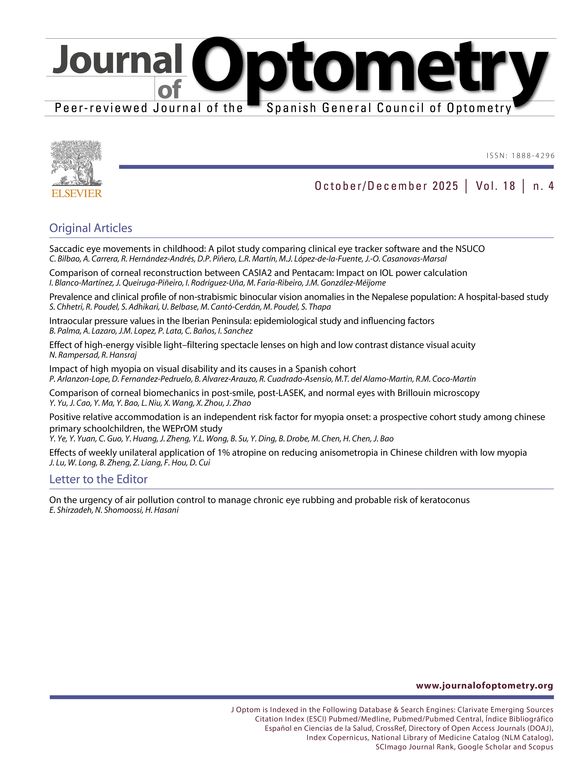The last months, Coronavirus has invaded everything. Every aspect of life has been affected and our concept of reality has changed. Of course, Optics and Optometry as a Health Care Profession, was never going to be immune to all these changes it has been experienced since March 2020. Nor to the uncertainty of the coming months or years.
A notable aspect of the impact of the coronavirus in our profession has been, and continues to be, the disinformation, and especially related to the greater or lesser safety of the use of glasses compared to contact lenses. A scientific article published in February described the conjunctivitis as one of the main symptoms of COVID-19 (even though only 0.8% of patients presented it).1 This study, together with another relating that coronavirus could remain on inert surfaces such as silicone rubber, has provoked an information stream contraindicating the use of the contact lens due to the risk of coronavirus infection.2 Fear of coronavirus has led to the recommendation of the disinfection of contact lenses for 6 h with hydrogen peroxide without neutralization, when there are recommendations for disinfection of other objects with hydrogen peroxide 6 times less concentrated for just one minute.3 The scientific evidence prior to the coronavirus pandemia shows that contact lenses disinfection is safe even against pathogens more resistant than the current coronavirus. So, what is causing such disinformation? A cocktail of excess and uncontrolled scientific “evidence” together with the desire to find the most shocking headline, mixed with some of coronavirus panic.4
As health professionals, optometrists should meditate, and at the same time, disclose to the entire society, that a scientific article is not enough to create scientific evidence. In this coronavirus era it has been published on this topic almost 10,000 articles in less than 5 months, most of them as a pre-print without having to go through peer reviews. It seems that everything about coronavirus can be published and probably that is the first mistake. But, it is essential to be critic reading any scientific article and keep in quarantine any conclusion that it may obtain, even when it seems logical or beneficial to our interest.
Meta-analysis is a very strong tool to support the scientific evidence. It is defined as “examination of data from a number of independent studies of the same subject, in order to determine overall trends”.5 However, not only the studies should be independent, but they should be very robust in terms of methodology, for avoiding potential bias. To extract conclusion from a weak meta-analysis, based on weak studies evaluation, is more dangerous than to do the same from a unique study, due to higher meta-analysis credibility.
The misuse of a recent meta-analysis, published in the Lancet, has caused the use of spectacles to be recommended as a suitable means of prevention.6 A previous belief, about the safety of spectacles due to the indication of approved personal use of protective glasses (medical masks, safety glasses or face shields) in specific settings for infected patients care already existed. Nevertheless, these facial shields provide a completely different protection from that which the standard prescription spectacles could provide and should be not considered eye protection for coronavirus. Only one study,7 also in pre-print, about the effect of eye protection (face masks or goggles) against Covid-19 infection was analyzed. The study was carried out on health care professionals who worked in patient care with this pathology, and no differences were found in terms of preventing infection between those who wore eye protection and those who did not. The rest of the data described in the Lancet article were extracted from other studies about the infection with other coronaviruses such as MERS or SARS and therefore, the same behavior could not be deduced for others such as COVID-19. There is insufficient evidence now to support such a radical recommendation for the general population.
In summary, it is so important that Heath Care Professionals are very careful providing scientific evidence than to spread this information to the population. Without the enough critic mind to detect what is real and confidence information, some professionals and institutions in the optical sector have adopted this biased and insufficient information in order to be the first one to advise. And therefore, moving from evidence to fake news.








